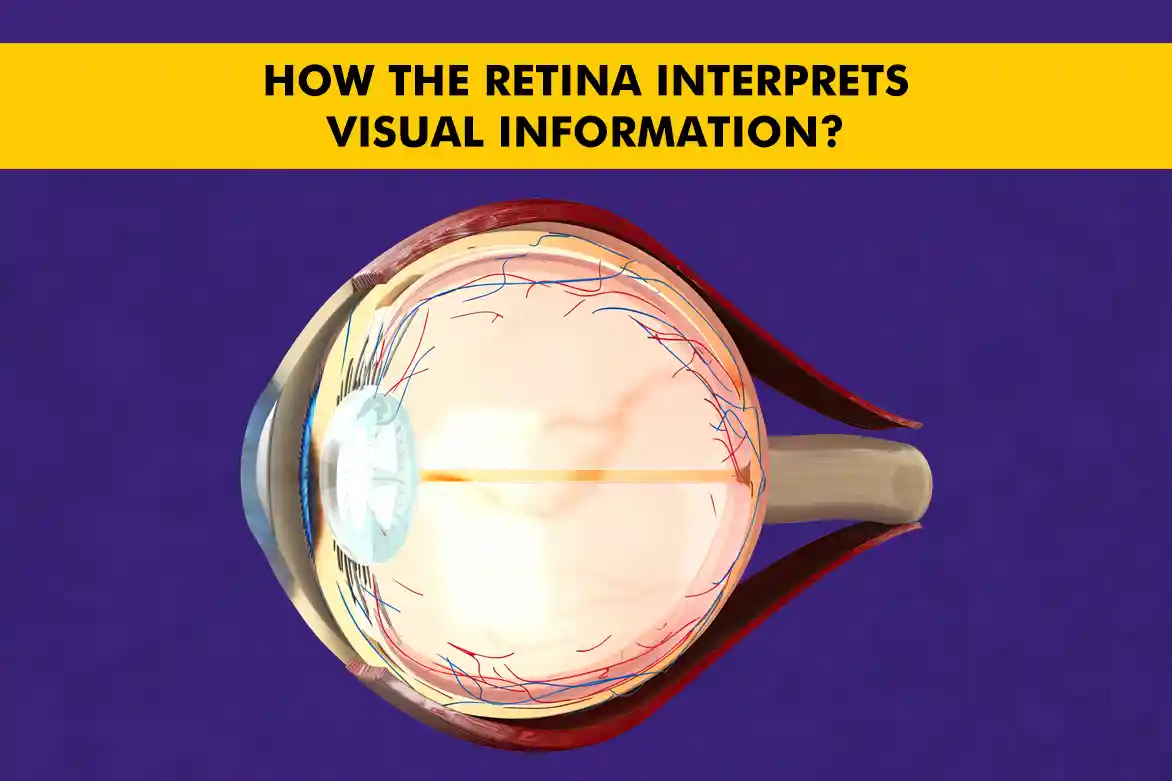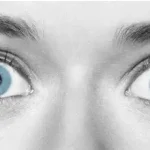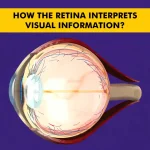Summary: The retina plays a vital role in vision by converting light into signals that the brain interprets as images. Maintaining retinal health is essential for clear and sharp vision. Conditions like macular degeneration, diabetic retinopathy, and retinal detachment can affect sight if not treated early. A balanced diet, regular eye check-ups, and a healthy lifestyle help protect the retina and preserve long-term vision.
The retina is a delicate layer of tissue situated at the rear of the eye, integral to our visual capabilities. It serves as a fundamental part of the visual system by capturing light and transforming it into neural signals, which the brain then interprets as images. Understanding the retina functions, retinal health, and the disorders that can affect it is vital for maintaining optimal vision and overall eye health.
How the Retina Processes Visual Information
When light enters the eye, it first passes through the cornea and then through the lens, which focuses the light onto the retina, a crucial layer at the back of the eye. The retina is equipped with specialized cells known as photoreceptors, which include rods and cones.
These photoreceptors are responsible for absorbing the incoming light and converting it into electrical signals. Once the light is transformed into these signals, they are transmitted to the bipolar cells and then to the ganglion cells, which play a significant role in further processing the visual information. The axons of the ganglion cells come together to form the optic nerve, a vital pathway that carries the processed visual information to the brain’s visual cortex. In the visual cortex, the brain interprets these signals, enabling us to perceive, understand, and interact with the visual world around us.
Common Retinal Disorders and Their Impact on Vision
- Age-related macular degeneration is a condition that causes deterioration of the central portion of the retina, leading to vision loss in the center of the visual field. It primarily affects older adults and can significantly impact daily activities like reading and driving.
- Diabetic retinopathy is a complication of diabetes that damages the blood vessels in the retina, potentially leading to blindness. It often progresses without early warning signs, making regular eye exams crucial for those with diabetes.
- Retinal detachment occurs when the retina peels away from its underlying support tissue, which can result in permanent vision loss if not treated promptly. Symptoms may include sudden flashes of light, floaters, or a shadow over the visual field.
- Retinitis pigmentosa is a group of genetic disorders that cause progressive degeneration of the retina, leading to night blindness and tunnel vision. Over time, it can result in significant vision impairment or complete blindness.
Importance of Retinal Health for Optimal Visual Function
Ensuring the retinal health of the retina is crucial for achieving and maintaining optimal visual function. The retina, a delicate and sensitive part of the eye, can be easily compromised by a variety of factors. These include prolonged exposure to excessive light, which can cause damage over time, as well as inadequate nutrition that fails to provide the necessary vitamins and minerals essential for eye health. Additionally, chronic health conditions such as diabetes can have a detrimental impact on retinal health, leading to serious complications.
To safeguard the retina, it is important to undergo regular eye examinations and embrace a healthy lifestyle. This includes consuming a balanced diet rich in nutrients, managing chronic health issues effectively, and protecting the eyes from harmful environmental factors. By taking these proactive steps, individuals can significantly enhance retinal health and reduce the risk of developing vision problems, thereby preserving their ability to see clearly and enjoy the world around them.
What are the Treatments for Retinal Health?
Depending on the condition, treatments may focus on minimizing damage, enhancing blood flow, managing underlying conditions, or fixing structural issues with the retina.
Common treatments include:
- Medications, including eye drops, oral medicines, or injections
- Laser therapy
- Surgery for retinal detachment or severe retinal disorders.
- Nutritional supplements like vitamins and antioxidants
- Controlling blood sugar, blood pressure, cholesterol, and other health indicators
- Scheduling eye exams
What are Some Major Healthy Retinal Functions?
A healthy retina allows you to see clearly, perceive colours accurately, and maintain good eye health. It helps you to:
- Have a clear vision.
- To perceive colours accurately and identify vivid and bright hues.
- See well in both bright and dim environments.
- Recognise objects in your side vision.
- Distinguish objects from background in low light or when they merge with similar colours.
- Detect moving objects easily.
- Translate light into clear visual signals for clear vision.
How to Improve the Health of the Retina?
To keep your retinal health problem-free, you should prioritise your diet, lifestyle, and maintain regular eye care:
- Consume a diet rich in leafy greens, fruits, and foods rich in omega-3 fatty acids.
- Keep blood pressure, blood sugar, and cholesterol in check.
- Avoid smoking and limit alcohol consumption.
- Wear UV-blocking sunglasses outdoors.
- Take frequent breaks from screens to lessen eye strain.
- Exercise regularly
- Schedule eye check-ups to identify and prevent retinal problems.
How do I know If My Retina is Healthy?
You can get a sense of your by observing how well and clearly you can see by having regular eye exams. It is indicated by:
- Clear vision for reading, driving, and recognizing faces.
- Recognition of colours accurately.
- Well-defined vision at night or in low light.
- Strong peripheral vision.
- Ability to easily distinguish objects from backgrounds.
- Smooth detection of any movement around you.
- No flashes, floaters, blind spots, dark spots, or wavy lines in your vision.
- Routine eye exams show no sign of swelling, bleeding, or abnormality.
Conclusion
The retina is a vital component of our visual system, essential for capturing and processing visual information. Understanding retina functions, common disorders, and health tips is crucial for maintaining optimal vision. By prioritizing retinal health and staying informed about the latest treatments and technologies, we can protect our vision and enjoy a clear view of the world around us.
FAQs
What causes retinitis pigmentosa?
Retinitis pigmentosa is primarily caused by genetic mutations that affect the retina’s light-sensitive cells, leading to gradual vision loss.
Can retinal disorders be cured or managed?
Many retinal disorders can’t be fully cured, but they can often be managed with treatments like medication, surgery, or lifestyle adjustments to slow progression.
How does aging affect the retina?
Aging can lead to retinal changes such as macular degeneration, reduced blood flow, and thinning of retinal layers, impacting vision over time.
What lifestyle changes can improve retinal health?
Eating a diet rich in leafy greens, exercising regularly, avoiding smoking, and protecting the eyes from UV light can support retinal health.
How does the retina affect visual acuity?
The retina processes light and sends visual information to the brain, directly influencing clarity, sharpness, and detail in vision.





